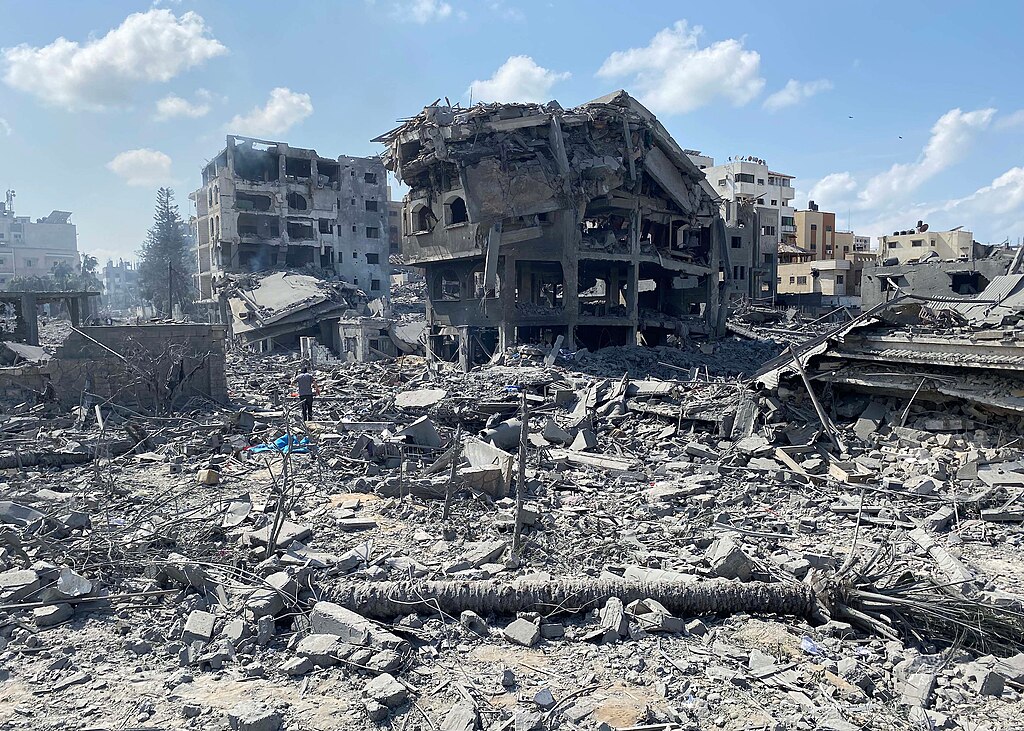By Fernando Jimnez, June 2006
1. Introduction
Social change arises from politics, not philosophy. Ideals are a crucial
step in emancipatory politics, however, because they dislodge our assumption
that was is given is necessary. They offer the standpoints from which to criticize
the given, and inspiration for imagining alternatives [1]
One of the main ideals behind the concept and practice of Social Production of Habitat (SPH) lies on the desire to imagine alternatives means to advance the rights and needs of adequate housing developments for everybody. Indeed, SPH cases studies may provide a wealth of ideas to incorporate such alternatives into national and international policies. To do so, reflections should not only focus on SPH actions legitimacy, but also in respect to their socio-economic efficiency and effectiveness to democratically solve habitat problems.
The principles in which rights area based arise from moral and philosophical spheres, but their operation needs clear rules about what people can do in relation to one another. Rights refer to doing more than having, to social relationships that enable or constrains action . Thus, the main challenge is to take a substantive step toward the formulation of proposals underpinned upon proactive pragmatic ideas rather than keeping exclusively moral and philosophical principles about justice.
Therefore, policy-relevant reflections are necessary. As a Chilean example properly shows , it is not enough to prove the morality of an action or a right but it is also necessary to prove the feasibility of its implementation as well as its socio-economic, political and cultural sustainability. Therefore, in order to persuade national authorities and international agencies about the importance and feasibility of political changes, emphasis on how SPH projects could be operate within the frame of social policies must be done.
This document aims at organising and elaborating some questions, which might help to develop such policy-relevant reflections. It is oriented to SPH activists from diverse agencies (NGOs, Universities and local governments, among others), and it is as a draft presented because is still an open version waiting for changes and proposals coming from these SPH case studies counterparts.
2. Why making policy-relevant reflections? Why are policies important for SPH actions?
Operatively, social policies related with habitat and housing are understood as the statements of objectives, principles, assumptions, standards, norms, plans and programmes upon which the constituent proposals for the physical, economic and social development of residential areas are based. On the other hand, part of this physical, economic and social development of residential areas in many countries actually depends on SPH actions, rather than resulting from the implementation of State policies. In other cases, both types of actions formal and informal ones- might prove to be complementary.
Yet, the housing-related dimensions of social policy affecting marginalised groups, such as ethnic minorities, women and those living on low incomes, as well as those at vulnerable stages in the life course, such as children, young people, and older people, are central to SPH activists. Indeed, some policies are critical for the implementation of SPH actions. Habitat and housing-related policies are important to SPH actions because they may play a role both on the extent that these policies may facilitate and/or prevent the development of such initiatives. Conversely, SPH actions might become more effective and efficient under the umbrella of legally established policies and procedures.
3. Policy prerequisites to implement and consolidate SPH actions
The implementation and later consolidation of SPH projects depends on a serial of already well-known factors such as availability of urbanisable land, security of tenure, access to credit, price of construction materials and infrastructure provision. Yet, most of these factors depend not only on the political willingness or market offer, but especially also on both States legal framework and existing policies. Therefore, besides the clarification of ethic-and-moral principles in which actions are based, it is also necessary to elaborate political proposals that promote and facilitate their implementation.
Here, the main assumed problem behind the need to implement SPH actions lies on a basic urban inequality: neither governments nor the market have been able to provide adequate dwellings and environments to people in the lowest-incomes. It is understood as a problem because facing the absence of opportunities low-income families are forced to rely on their own capacities. In spite of the fact that many examples have demonstrated their strong abilities, low-income people are in much more vulnerable situation than people who can afford to use other options. However, there are many options that people take where SPH appears as one of the most organised manners.
In addition, the concretion of SPH projects depends on a serial of aspects and factors that may be understood as constrains and as pre-requisites. In the end, the means of solution form part of broad political, legal, financial and technical factors, among others. Consequently, Table 1 aims at organise all these constituents of this Housing Problem.
5. Guidelines for the development of a Questionnaire and possible questions
The questionnaire is directed to a reflective analysis of case studies that might favour pragmatic proposals. Yet, How can we obtain policy-relevant information from diverse case studies? It is expected that most of the questions and answers should be oriented to highlight:
– The role and attitude of the government or State
– the economical benefits of SPH
– the effectiveness of SPH projects
– the sustainability aspects of SPH projects
– the need to consolidate social capital but also to secure economic capital
6. Proposed initial questions
a) Questions related to governmental attitude and policy responses
Which is the general governmental attitude to housing?
- Does not consider housing as a priority and only act when economy grows?
- Is worried about the growth of squatters and slums and applying reactive measures such as evictions and small interventions?
- Is interested on the social impact of squatters and slums, recognise the right of the people to remain in the city and try to regularise land and/or infrastructure
- Assumes that people living in squatters and slums are important to urban economy and provide minimal infrastructure and emergency housing
- Accepts that major institutional changes are necessary and actively support peoples efforts for their SPH.
What sort of actions has the government on housing?
- Makes no action?
- Has plans and programmes both considering evictions and public housing to -at least in the paper- low-income families?
- Has ambitious housing programmes and reduces actions pro-evictions?
- Implements upgrading programmes and support to SPH initiatives?
- Tries to secure accessible financial options?
What types of actions are implemented to improve basic services?
- Leaves the contrast between areas? Extend basic services to low-income areas?
- Upgrades programmes include basic sanitation?
- There is a major commitment to provision of basic infrastructure?
- Try to ensure widespread provision?
What does the government to finance low-income housing and infrastructure?
- Nothing / Supports mortgages / Systematically stimulates savings / provides long-term loans / improves efficiency of borrowing institutions / encourages and supports informal and community finance institutions?
What does the government in relation to building norms and codes?
- Does not regulate / has unrealistic standards / has flexible standards?
Which type of actions has the government regarding land?
- No action / makes cheap land available / provides tenure to informal settlements / release public land / enforces land policies?
Which type of actions has the government regarding building materials?
- No action / accept the use of materials that are not in the building code / support widespread and production of cheap materials, components?
What attitude has the government to community groups?
- Ignore them / repress them / promote certain level of participation / accept low-income peoples rights to define the type of programmes they want to participate / assume that support to community groups enhance citizenship?
b) Questions related to Constrains and pre-requisites for SPH
Which regulations and/or interventions in land markets would be necessary to improve organised groups accessibility to urbanisable land? What basic conditions should have (existing or planned) these lands?
How could accessibility to financial means for the implementation of SPH be enhanced? (credits, subsidies, grants) How can financial resources be facilitated to SPH projects implementation? (credits, subsidies, grants) Which ones could be more effective and feasible? How can they be allocated?
What sort of property type should be favoured? (individual property, co-operative ownership, public-private ownership, private for rent, public for rent)
What sort of incentives and/o micro, macro-economic reforms could be applied to pool resources for SPH developments? (interest rates, taxes, exemptions, increase of public expenditure, credit, subventions to private
What sort of urban measures should be implemented by the public sector to facilitate SPH developments?
The questions about adequate housing and rights: why they should be not only acknowledged but also fulfilled? Which are the benefits?
How may progressively processes of PSH be oriented and supported? (normative, code, laws, public expenditure and investment, incentives to private investment, planning)
c) Which could be the role of SPH in the following aspects?
security of tenure in informal settlements; protection from forced eviction by State and non-State actors;
non-discrimination, including gender-based discrimination in customary law;
provision of affordable housing for the poor; accessibility to persons with disabilities;
housing restitution; habitability; homelessness; and land rights.
d) Questions related to projects success and sustainability
Could SPH processes be more efficient and and effective that the private or the public sector on improving housing conditions? Why? How can it be proved?
Do they enhance local democracy? Why? (Citizen participation, community development and democratic priority-setting)
Are they a useful tool for improved local governance? (strategic planning, needs assessment and conflict resolution)
Are they equally relevant and applicable for diverse localities?
What impact might the proposal have on the sustainability of small housing associations?
Which relation exists between social capital formation and economic capital formation?
Why do we affirm that SPH projects are more adequate or fulfil peoples expectations?
Which qualitative aspects from the case studies can be highlighted?
May SPH projects use economies of scale? How?
7. Last comments
Social policies should represent societal statements of aims, instruments and regulations aimed at bridging the possible gaps between people that have different access to basic opportunities such as health, education and shelter, and the state, as the main societal authority, should assure the fair distribution of goods and rights among society
Policy should be used as an instrument to confront social inequality, as well as a means for effective action and the enhancement of citizenship rights. That could be possible if they bring people the opportunity to take control over their social and material capital by making them part of a housing process which include the chance to modify their living conditions over time. In other words, housing policies should not only provide affordable, valuable and
accessible housing -close to the wider set of urban opportunities- but also enabling people and facilitating peoples participation and the improvement and adaptation of the housing stock over time.
Yet, Social Production of Habitat might be seen as a flexible instrument that not only meet diverse stakeholders but also include alternative means to develop and finance housing projects. Besides technocratic measures, a central aspect is to enable people, and enabling people is meant to bring people the right to decide where and how they would live having certain grades of autonomy, rather that continuing depending on the rule of governmental powers, policy-makers and the market.
It is necessary to change the understanding of housing as an object; a shift from providing tangible physical environments to the non-tangible provision of networks (skills, tools, instruments) and means instead of final products. Moreover, policies should prioritise sustainable pro-active and preventive measures and not just acting through reactive and ameliorative interventions. A mental shift is necessary so that housing provision is no longer understood as a means to satisfy basic material needs but also the rights of citizenship.
[1] YOUNG, I.M. (1990). Justice and the Politics of difference. Princeton University Press, 1990, p. 256
[2] Id. footnote 1 ( p. 26)
[3] In Pinochets times a responsible official for the construction of the metropolitan underground decided to built fences next to the train rails along its pass in the middle of a highway. Another official from the Ministry of Economy questioned these fences with the argument that they were not necessary because the chances of somebody crossing there was reduced to maybe one or two slackers per month. Facing such a comment, the first official replied with an exhaustive monetary calculation revolving the costs of one or two slackers dying and delaying the underground, and demonstrated that the cost of the fences was lower. He was congratulated and the fences build.
[4] Adapted from: Michael Pacione, Urban geography: A Global Perspective, pp. 508-510. Routledge 2001.


